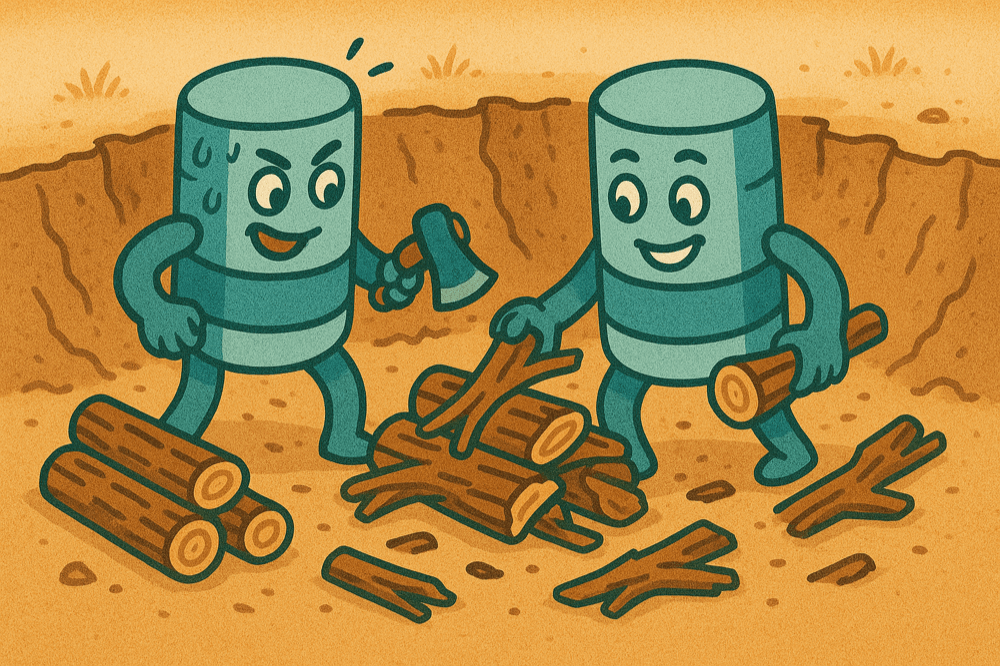Share your build story
Have a war story from the trenches? A technical deep dive worth sharing? Join the community of builders documenting the real work of shipping products.

How to Get Your Story Published
Simple process, no gatekeeping. If it's real and it helps builders, it belongs here.
Write Your Story
Create a Markdown file with your build log, technical deep dive, or founder lesson. Be specific, be honest, include code snippets if relevant.
Submit Your Post
Send your .md file to [email protected] or submit a pull request on GitHub. Include a brief intro about yourself and your project.
Quick Review
I'll review for the community guidelines (see below), maybe suggest minor edits for clarity, then publish. Usually within 48 hours.
Go Live
Your post goes live with full attribution. You'll get the link to share with your network. Welcome to the build log community!
Community Guidelines
Keep it real, keep it helpful, keep it respectful.
Keep it PC & Family Friendly
Professional language only. Your kids, your parents, and your investors might read this. Make them proud!
Leave the World in a Better Place
Share what worked, what didn't, and what you learned. No negative vibes or thrash talking allowed.
Be Honest
Share real metrics, real code, real problems. No inflated numbers or success theater.
Show Your Work
Include code snippets, architecture diagrams, or screenshots when relevant. Specificity helps everyone.
Respect Privacy
No sharing private customer data, internal company info, or anything that could harm others.
Add Value
Every post should teach something or share an insight. Ask yourself: will this help another builder?
What Makes a Great Build Log?
The best posts are specific, raw, and honest. They show the actual work—the debugging sessions, the architecture debates, the "whoops!" moments when the penny drops that you've been doing it wrong.
Don't worry about perfect writing. Worry about sharing something real that will help another builder avoid your mistakes or learn from your wins. That's what this community is about.
Technical Deep Dives
How you solved a specific problem, implemented a feature, or debugged a nasty issue.
Architecture Decisions
Why you chose certain tools, frameworks, or approaches—and how it worked out.
Failure Post-Mortems
What broke, why it broke, and what you learned. These are often the most valuable posts.
Launch Stories
The real timeline of shipping a feature or product, including the last-minute scrambles.
Sample Markdown Template
Here's a template to get you started. Copy this structure and fill in your own details:
---
publishDate: 2024-12-13T10:00:00Z
title: How I Fixed Our Deployment Pipeline in One Coffee Break
excerpt: Our CI/CD was broken for weeks. Here's the 3-line fix that saved us 2 hours per deploy.
tags:
- devops
- deployment
- build-log
- debugging
---
## The Problem
Our deployment pipeline started failing after we upgraded to Node 20.
Every deploy took 45 minutes and failed 60% of the time.
```bash
# This was failing silently
npm run build --production
```
## The Investigation
I spent Tuesday morning diving into the logs:
1. **Build logs showed**: Memory usage spiking at 4.2GB
2. **Docker container**: Only allocated 4GB RAM
3. **The real culprit**: New TypeScript compiler using more memory
## The Fix
Three lines in our Dockerfile:
```dockerfile
# Before
FROM node:20-alpine
# After
FROM node:20-alpine
ENV NODE_OPTIONS="--max-old-space-size=8192"
```
## Results
- Deploy time: 45min → 8min
- Success rate: 40% → 100%
- Team happiness: 📈
## Lessons Learned
1. Always check resource limits first
2. Node 20's memory usage patterns changed
3. Docker defaults aren't always enough
Next time I'll monitor resource usage during upgrades.
---
*The fix was simple. Finding it wasn't.*Frontmatter
Add these required fields at the top of your .md file between triple dashes.
Content Structure
Use clear headings and include code snippets, metrics, or screenshots where relevant.
Real Examples
Show actual implementation details, not just high-level concepts.
Ready to Share Your Story?
Don't overthink it. If you've built something, broken something, or learned something in the last week, you have a story worth sharing.